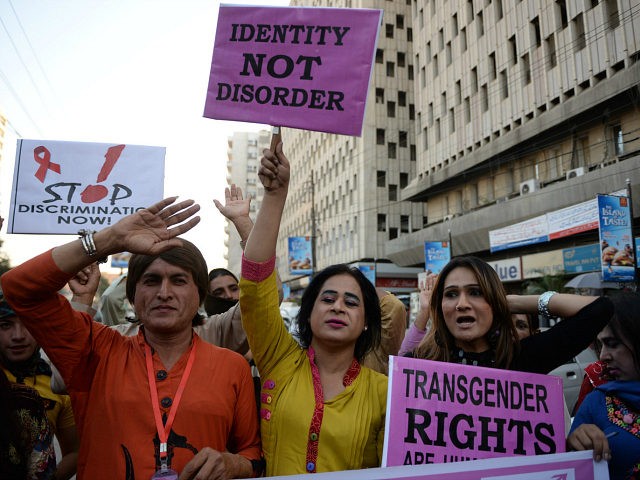As of Sunday, transgender men are allowed to marry transgender women in Pakistan, following a fatwa (or religious decree) issued by an Islamic scholar permitting the act.
According to Pakistan’s Tribune, Mufti Muhammad Imran Hanfi Qadri, an Islamic scholar belonging to the Barelvi school of thought, decried “A transman can marry a transwoman and vice versa, but intersex person – people born with physical sex characteristics that do not fit typical binary notions of male or female bodies – cannot marry at all according to Islam.”
According to the BBC, the fatwa was passed by a group of 50 clerics, who are members of a lesser-known Tanzeem Ittehad-i-Ummat group based in Lahore. The Barelvi school of thought follows many Sufi practices of Islam: the more mystical side of the faith.
Imam Qadri reportedly noted that any act to “humiliate, insult or tease” transgender individuals should be considered a crime under Islam. He also said that transgender children should receive the same inheritance as they would if they did not identify that way and reportedly urged the government to take action against parents who deprived their trans children of such things.
The fatwa says that, in accordance with Islam, transgender people who exhibit “visible signs” of being male or female are permitted to marry someone of the opposite sex. For example, someone who is born with male genitalia but identifies as a female is allowed to marry a female and vice-versa. They are also required to follow the rules of Islam like any other straight male or female.
However, intersex individuals (“Khunsa-e-Mushkil” in Arabic) are forbidden from marrying as their matrimony is strictly forbidden under Islamic Sharia law.
An intersex person is someone whose genitals are ambiguous and it is difficult to determine whether they are male or female. Intersex is different from a hermaphrodite, which is defined as a person having both male and female sex organs. However, the Intersex Society of North America does not recognize hermaphrodite as a condition; they suggest it is a “mythological term.”
Still, life for transgender people living in Pakistan is very challenging, as they are subjected to bullying and sometimes killed. The country is still struggling to allow love marriages, as arranged marriages are the norm. Several couples have been beheaded or set on fire when their families discovered they had married for love and against their will.
The BBC notes that “in 2012, Pakistan’s Supreme Court declared equal rights for transgender citizens, including the right to inherit property and assets. They were also given the right to vote the year before.”
According to RT, in April of 2014, India’s Supreme Court officially recognized transgender people as a third gender, paving the way for state and federal governments to allow for transgenders to identify themselves on official documents (passports, birth certificates, and driver’s licenses) as such. The court ruling reportedly also made it possible for transgender people to adopt children like other Indians who identify as male and female.
Follow Adelle Nazarian on Twitter @AdelleNaz.

COMMENTS
Please let us know if you're having issues with commenting.